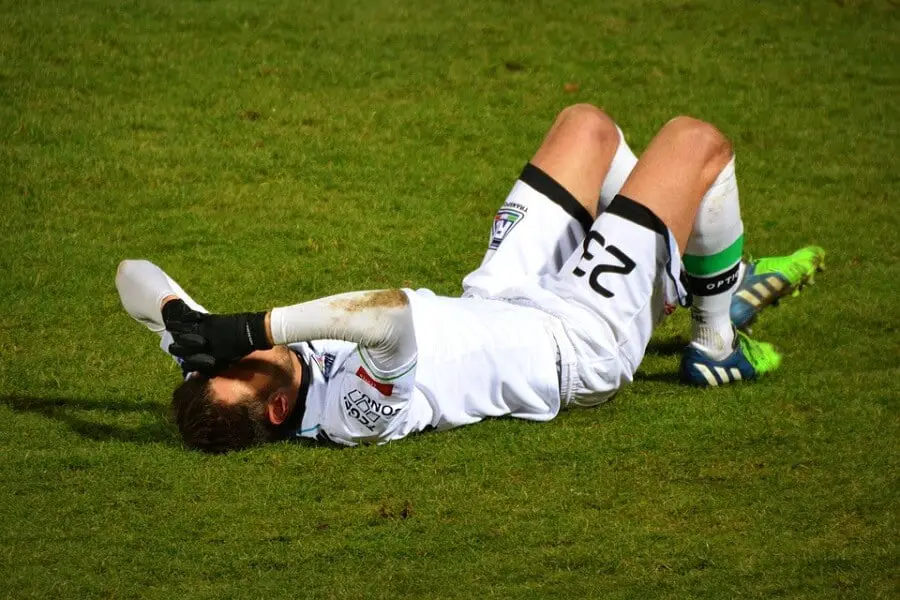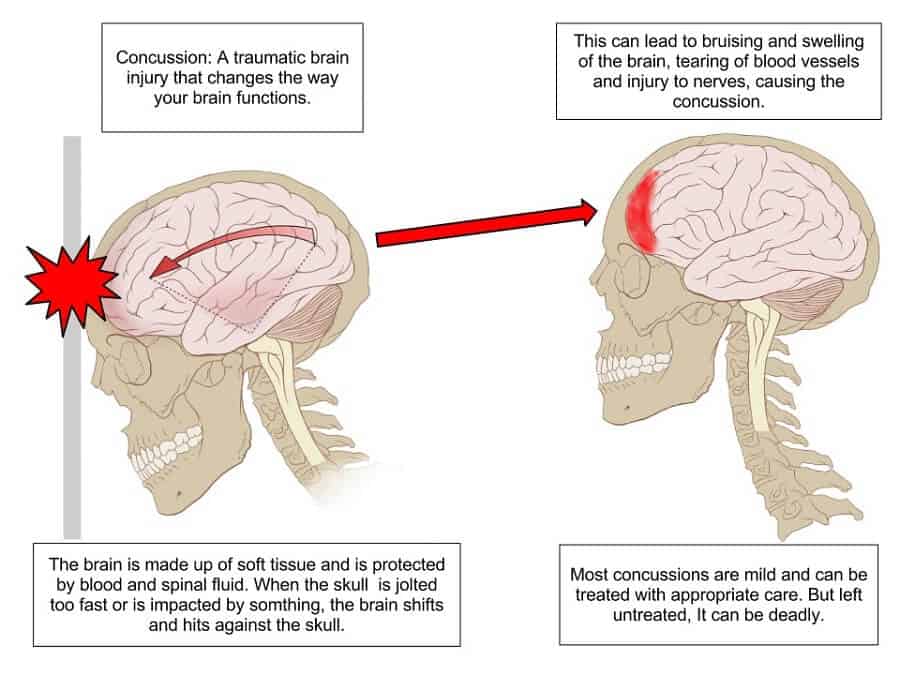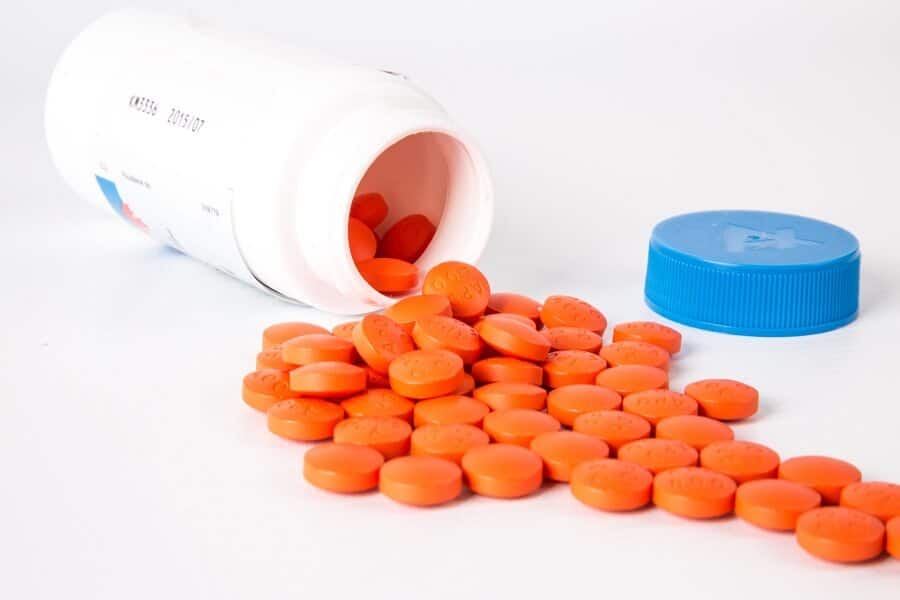Table of Contents
If you are a sports player or an athlete, then you know that you constantly run the risk of getting injured. One type of injury that can be quite dangerous is the one to the head. Sometimes, hitting your head can lead to a concussion, which can later translate into a post concussive syndrome. Because we want to keep you informed as to what are the risks you expose yourself to while playing sports, we thought we would make today’s guide all about post concussive syndrome. Consequently, we are going to take a look at what causes it, what are the symptoms you can expect, and more importantly, how you can treat it.

*This post may contain affiliate links. As an Amazon Associate we earn from qualifying purchases.
What Is the Post Concussive Syndrome?
Post-concussion syndrome or PCS, is a disorder made up of several symptoms that occur after a concussion. The symptoms can last for weeks (in some cases even months or years), and they include headaches, dizziness, irritability, or difficulty concentrating.
The definition of a concussion is a traumatic brain injury that is described as mild. It usually occurs after someone has received a strong blow to the head. The important thing you should remember is that you don’t have to lose consciousness in order to have a concussion. Which is why it is better to seek medical attention anytime you get hit in the head.

Post Concussive Syndrome Causes
As we’ve already mentioned, the post concussive syndrome is caused by a blow to the head. This blow leads to a concussion. However, you should know that not all people who get a concussion will also experience this syndrome. This can only be good news, of course. However, if this is not your first time getting a concussion, the possibility of suffering from post concussive syndrome increases.
Post Concussive Syndrome Symptoms
The symptoms associated with the post concussive syndrome usually appear around 7 to 10 days after the incident. In most cases, they also disappear in about 3 months, but there are exception to this rule as well.
The most common symptom is headaches, which you also normally get after a concussion. However, the intensity of the headache can vary according to case. Some people experience headaches that feel like a tension in their head, while other get really bad migraines. The good news is that the latter case is more rare and not many people experience migraines as a result of a concussion. The other type of headache might also come from a neck injury that accompanied the head injury.
Other common symptoms of the post concussive syndrome are: dizziness, fatigue, insomnia, loss of memory or concentration, sensitivity to light and noise, irritability, depression, and anxiety. The last three symptoms are quite different from the others, because they relate to emotional or behavioral changes. You might notice people that suffer from a post concussive syndrome be argumentative, irritable, more stubborn, and even suspicious.
How Do I Know for Sure I Have Post Concussive Syndrome?
The best thing you can do if you notice any symptoms is to seek immediate medical attention. The doctor doesn’t have an exact test to determine whether you are suffering from this syndrome or not. However, he or she will most likely do a brain scan to check if something else can explain your symptoms. Then, a computerized tomography (CT) or a magnetic resonance imaging (MRI) might be in order. They will show any brain abnormalities.
Post Concussive Syndrome Treatment
Again, there is no treatment designed specifically for the post concussive syndrome. So what the doctor will usually advise you to do is treat every symptom separately. For instance, you can treat your headaches with medication. Such medication includes: amitriptyline (designed to treat post-traumatic injuries), topiramate (effective for migraines), or gabapentin (effective for more than one type of pain).

If you are also dealing with memory issues and cognitive problems after experiencing a concussion, there isn’t much you can do about it. The best course of action is to be patient, since time usually solves these issues. However, even if you can’t medicate yourself, you can use cognitive therapy. This teaches you techniques to improve your attention skills.
Anxiety and even depression are another thing you should fear if you are dealing with post concussive syndrome. The best way to treat those is to go to therapy. Look for a therapist who has experience dealing with people who have anxiety or depression as a consequence of a brain injury. Another way to treat these issues is by taking medication. However, you should never medicate yourself, but only go for this option if the doctor recommends it to you.
Everything Summed up
Post concussive syndrome is a condition that you can experience after you’ve had a concussion as a result of a blow to the head. Even if the symptoms associated with it usually go away in about 3 months, they can put a strain on the quality of your life. Which is why the best course of action is to seek medical attention the second you start to acknowledge the symptoms we discussed above. Never try to take medication without asking for a specialist’s opinion first, and try not to let this syndrome affect your life. As long as you treat the symptoms, the post concussive syndrome will eventually go away.
Image Source: 1,2,3
